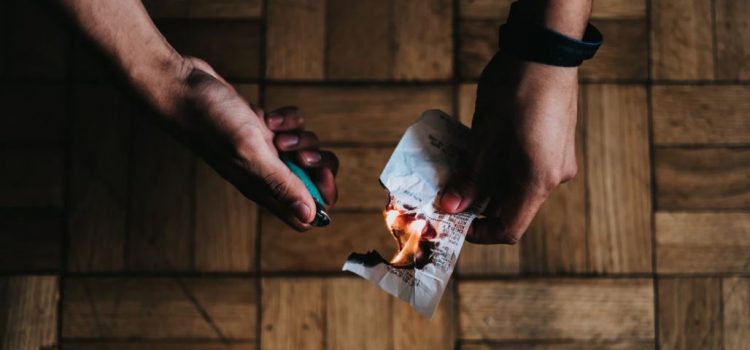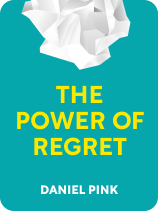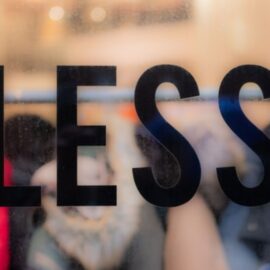

This article is an excerpt from the Shortform book guide to "The Power of Regret" by Daniel Pink. Shortform has the world's best summaries and analyses of books you should be reading.
Like this article? Sign up for a free trial here.
What is regret? What is Daniel Pink’s three-step process of regret?
In The Power of Regret by Daniel Pink, regret is described as an outcome of reflecting on past choices people wish had gone differently. Pink further claims that regret is a process that everyone goes through.
Keep reading for a breakdown of Pink’s process of regret and why we regret in the first place.
What Is Regret?
Before we explain the benefits of regret, it helps to ground our discussion in Daniel Pink’s regret definition. Most people identify regret as a painful feeling that arises while reflecting on past decisions and wishing they had acted differently. However, Pink argues that we should view regret not as a feeling, but as the outcome of a process—not as something we have, but as something we do.
He explains that our brains must engage in a multi-step process to create an experience of regret. We’ll walk you through the three steps of regret and explain the different factors that enable it.
The 3 Step Process of Regret
According to Daniel Pink, regret involves three steps: telling a story about the past, inventing a new story about an alternative past, then comparing the two.
Step #1: Telling a Story About the Past
Pink explains that the first thing someone needs to experience regret is a story about their past. He suggests that we as humans are unique in our ability to tell stories and to “time travel” in our imaginations. We begin the process of regret by creating a narrative about something we did or didn’t do in the past.
(Shortform note: Psychologists explain that the story you tell about yourself changes throughout your life. Storytelling is a way of reconciling past events with your present self-image. Storytelling also plays an important role in defining your trajectory in life—your sense of where you’re going and where you’ve been. Therefore, the story you tell yourself about your past may not be an accurate reflection of events, but rather a reflection of how you feel and think about your life in the present.)
Step #2: Imagining an Alternative Story
Pink explains that the second step in the process is creating a new narrative in which you behaved differently in the past. You imagine that your life in the present is different because your past self acted differently.
If your original story was about a poor decision you made or an opportunity you let slip through your fingers, this alternative story is a fantasy where you made the opposite decision or took advantage of the opportunity. In the alternative story, your life played out differently because of this change in the past. At this point in the process, you haven’t yet compared the two stories—you’ve simply created them.
Step #3: Comparison and Evaluation
Pink explains that you complete the process by comparing and evaluating the two presents. You’ll then decide which one you like better: your current life (original story) or the alternative present (alternative story). This stage has two potential outcomes, one leading to regret.
Outcome 1: You like your actual life more than your imagined life. This comparison will produce a sense of relief that you’ve avoided a worse fate than your current life. However, this outcome is extremely rare because most people are more inclined to dwell on what could have gone better in their lives than what could have gone worse. Outcome 1 occurs most often with people who have had near-death experiences or survived natural disasters.
Outcome 2: You like your imagined life more than your actual life. When you see that you’re happier and more fulfilled in the imagined scenario than in your current life, you may feel a sense of pain, loss, or grief. You then attribute this feeling to the decision you made in your first story, leading you to experience regret. For example, if you have a relative who recently passed away and you didn’t spend much time with them, you may think, “If only I’d reached out to this relative sooner, I would have had this relationship in my life.” Pink explains that this second outcome is far more common than the first.
Conditions for Regret
Pink suggests that, beyond creating a story of a preferable imagined life, two additional factors determine whether someone will engage in the process of regret: personal agency and opportunity.
Regret Condition #1: Personal Agency
Pink clarifies that people only feel regret if they believe themselves to be the cause of their negative situation. The comparison between their two possible presents will only produce regret if their negative situation is due to their past actions or decisions.
While almost everyone experiences painful emotions when events don’t work out the way they’d hoped, if they don’t consider themselves the cause of their negative situation, they feel disappointment rather than regret.
That said, Pink offers one important caveat: Sometimes people incorrectly attribute an outcome to their actions when it was actually beyond their control. For example, someone who is laid off from their job may attribute the situation to poor work performance, when actually their company simply decided to eliminate the role entirely. This false attribution may lead them to regret inconsequential mistakes, such as coming to work late once or making a typo on an email. As we will see later in this guide, correctly analyzing the situation is an important part of growing from regret.
Regret Condition #2: Opportunity
Pink explains that people only regret past decisions if they believe they could have chosen otherwise. If there wasn’t a choice they could have made to change the outcome, they can’t really attribute their present situation to this choice. Therefore, people who have more opportunities in a given situation tend to have more regrets.
For example, you’re more likely to regret your career choice if you live in a town with a diverse range of industries because you had lots of potential career options. However, if you live in a small town with only one or two industries, you have fewer alternative paths to take and therefore fewer opportunities to imagine how your life could have been different. You’re less likely to regret your career choice because you’ve given up fewer alternative paths.

———End of Preview———
Like what you just read? Read the rest of the world's best book summary and analysis of Daniel Pink's "The Power of Regret" at Shortform.
Here's what you'll find in our full The Power of Regret summary:
- A look at why most people feel regret, and what causes it
- The three worst ways to deal with regrets
- The five-step process for turning regrets into advantages






